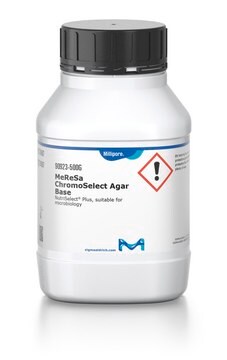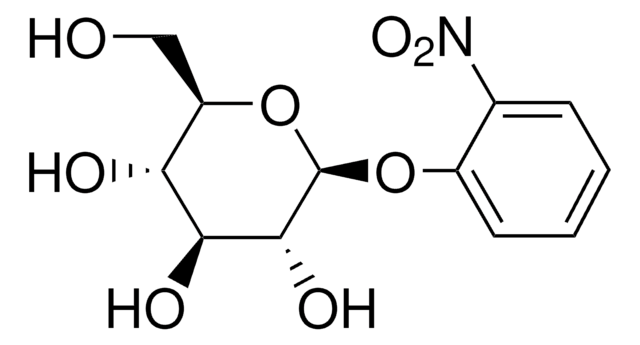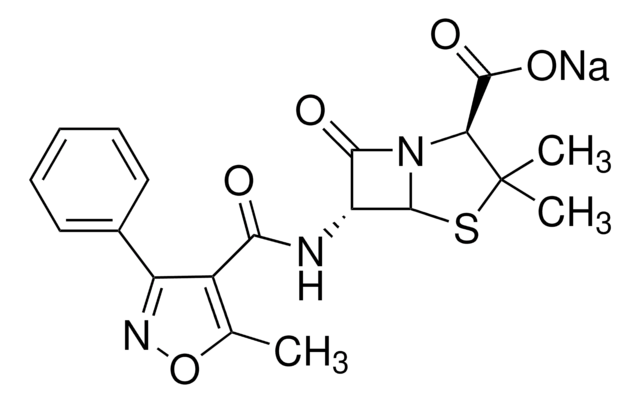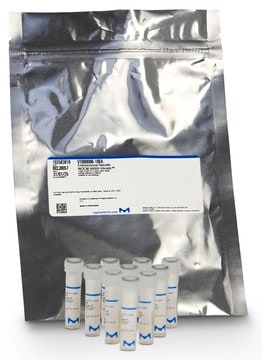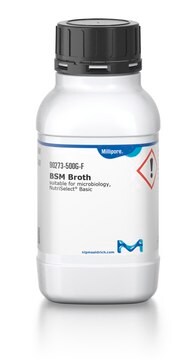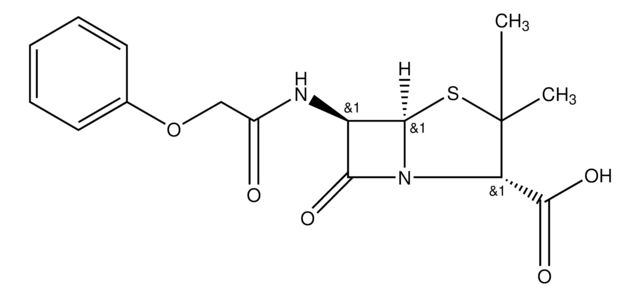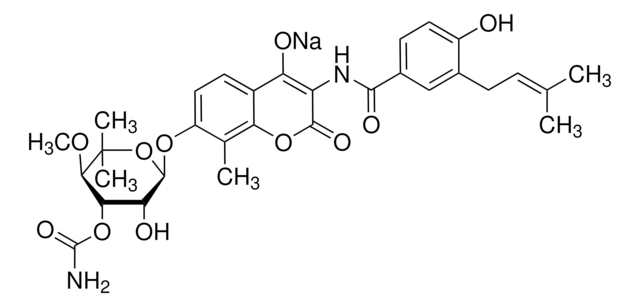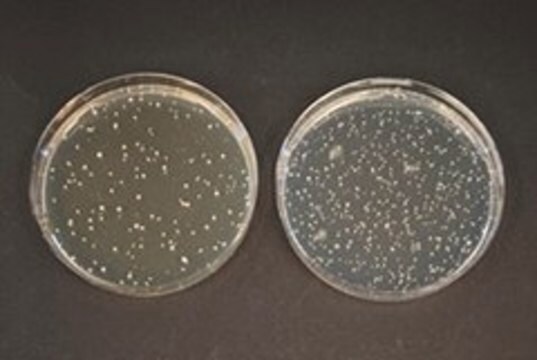51387
MRSA Selective Supplement
suitable for microbiology
Synonym(s):
Methicillin, Methicillin Selective Supplement, 2,6-Dimethoxyphenyl-penicillin, Staphcillin
About This Item
Recommended Products
sterility
sterile
Quality Level
form
powder
shelf life
limited shelf life, expiry date on the label
application(s)
clinical testing
environmental
food and beverages
microbiology
storage temp.
2-8°C
suitability
Staphylococcus spp.
SMILES string
COc1cccc(OC)c1C(=O)N[C@H]2C3SC(C)(C)[C@@H](N3C2=O)C(O)=O
InChI
1S/C17H20N2O6S/c1-17(2)12(16(22)23)19-14(21)11(15(19)26-17)18-13(20)10-8(24-3)6-5-7-9(10)25-4/h5-7,11-12,15H,1-4H3,(H,18,20)(H,22,23)/t11-,12+,15-/m1/s1
InChI key
RJQXTJLFIWVMTO-TYNCELHUSA-N
Looking for similar products? Visit Product Comparison Guide
General description
Application
Components
Methicillin 2 mg
Signal Word
Warning
Hazard Statements
Hazard Classifications
Acute Tox. 4 Oral
Storage Class Code
11 - Combustible Solids
WGK
WGK 3
Flash Point(F)
Not applicable
Flash Point(C)
Not applicable
Personal Protective Equipment
Choose from one of the most recent versions:
Already Own This Product?
Find documentation for the products that you have recently purchased in the Document Library.
Our team of scientists has experience in all areas of research including Life Science, Material Science, Chemical Synthesis, Chromatography, Analytical and many others.
Contact Technical Service